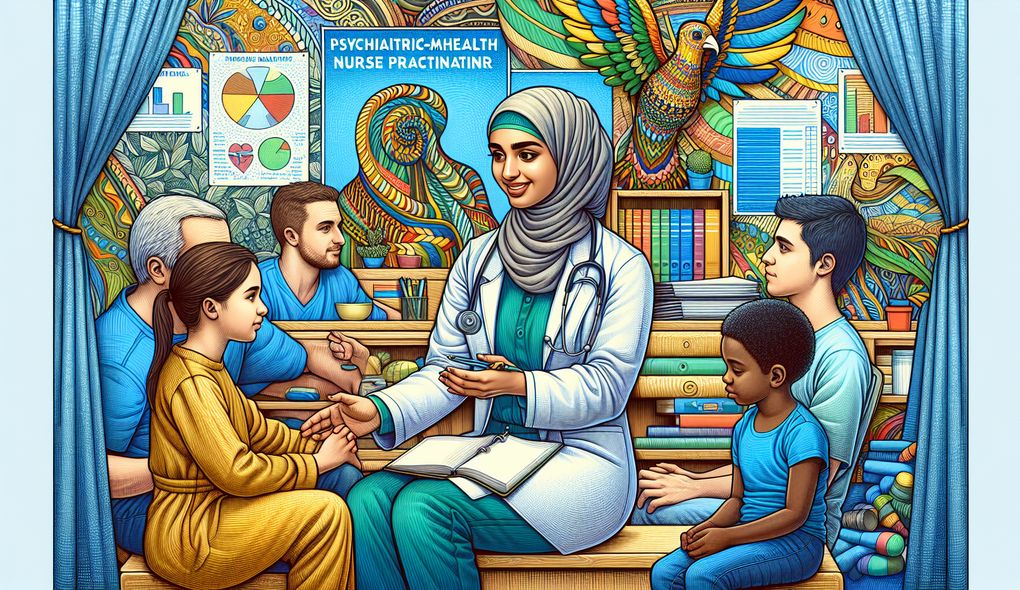What clinical skills do you possess in psychiatric assessment and intervention?
JUNIOR LEVEL

Sample answer to the question:
I possess strong clinical skills in psychiatric assessment and intervention. I have experience conducting comprehensive patient assessments to identify mental health conditions and substance use disorders. I develop individualized care plans based on patient assessments and collaborate with healthcare professionals to coordinate care. I am knowledgeable in psychopharmacology and medication management. Additionally, I have crisis intervention and conflict resolution skills. I am committed to ethical practice and maintaining patient confidentiality. I continuously update my skills and knowledge through professional development opportunities.
Here is a more solid answer:
As a psychiatric-mental health nurse practitioner, I possess a wide range of clinical skills in psychiatric assessment and intervention. I have conducted numerous comprehensive patient assessments to accurately identify mental health conditions and substance use disorders. Based on these assessments, I have developed individualized care plans that address the specific needs of each patient. I work closely with physicians, therapists, and social workers to coordinate care and ensure a holistic approach to treatment. In terms of interventions, I am experienced in utilizing various therapeutic techniques such as psychotherapy and psychopharmacology. I am well-versed in the principles of psychopharmacology and have extensive knowledge of different medications and their potential side effects. Additionally, I have strong crisis intervention and conflict resolution skills, allowing me to effectively manage critical situations in a calm and professional manner. I am committed to upholding ethical practice and maintaining patient confidentiality at all times. Furthermore, I have a strong aptitude for lifelong learning and professional development, which is essential in staying updated with the latest advancements in the field of psychiatric care.
Why is this a more solid answer?
The solid answer provided more specific details and examples to support the candidate's claims. It addressed all of the evaluation areas mentioned in the job description and showcased a comprehensive understanding of psychiatric assessment and intervention. However, the answer could still benefit from further elaboration and providing more specific examples of past experiences.
An example of a exceptional answer:
In my role as a psychiatric-mental health nurse practitioner, my clinical skills in psychiatric assessment and intervention have been instrumental in providing high-quality and comprehensive care to patients. I have conducted in-depth assessments that go beyond the surface-level symptoms and delve into the root causes of mental health conditions. This approach enables me to develop highly individualized care plans that take into account the unique needs and circumstances of each patient. Collaborating closely with interdisciplinary teams, including physicians, therapists, and social workers, is second nature to me. By fostering effective communication and maintaining strong interpersonal relationships, we ensure that every aspect of a patient's care is seamlessly coordinated. When it comes to interventions, my expertise extends beyond traditional methods. I have extensive experience in utilizing innovative techniques such as cognitive-behavioral therapy and mindfulness-based interventions, tailoring them to the specific needs of each patient. This holistic approach allows for more effective and sustainable outcomes. In addition to my expertise in psychotherapy, I have a deep understanding of psychopharmacology and medication management. I stay up to date with the latest advancements in this field to provide the most appropriate and evidence-based treatment options to my patients, always prioritizing their safety and well-being. When faced with crises, I remain calm and composed, using my strong crisis intervention and conflict resolution skills to de-escalate situations and provide the necessary support. I am unwavering in my commitment to ethical practice and maintaining patient confidentiality, recognizing these principles as the foundation of trust and effective care. To ensure my knowledge and skills remain current, I actively seek out professional development opportunities, attend conferences, and engage in ongoing education. This allows me to stay at the forefront of advancements in psychiatric care and provide the highest level of care to my patients.
Why is this an exceptional answer?
The exceptional answer provided a highly detailed and comprehensive response that showcases the candidate's extensive experience and expertise in psychiatric assessment and intervention. It goes beyond the basic and solid answers by providing specific examples of innovative techniques used, highlighting the candidate's commitment to continuing education and professional development, and emphasizing the importance of trust, ethical practice, and patient confidentiality in their approach to care. The answer demonstrates a deep understanding of the evaluation areas mentioned in the job description, making it an exceptional response.
How to prepare for this question:
- 1. Familiarize yourself with different psychiatric assessment tools and protocols.
- 2. Stay updated with the latest advancements in psychopharmacology and medication management.
- 3. Gain experience in crisis intervention and conflict resolution through training or real-world scenarios.
- 4. Actively seek out opportunities for professional development and continuing education in the field of psychiatric care.
- 5. Reflect on past experiences and prepare specific examples that demonstrate your clinical skills in psychiatric assessment and intervention.
What are interviewers evaluating with this question?
- Clinical skills in psychiatric assessment
- Clinical skills in intervention
- Ability to develop and implement care plans
- Communication and interpersonal skills
- Knowledge of psychopharmacology and medication management
- Crisis intervention and conflict resolution skills
- Commitment to ethical practice and patient confidentiality
- Aptitude for lifelong learning and professional development

